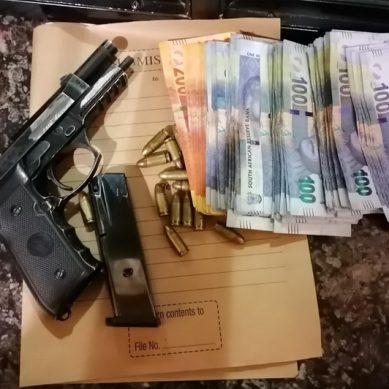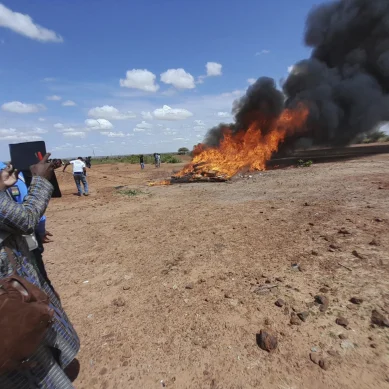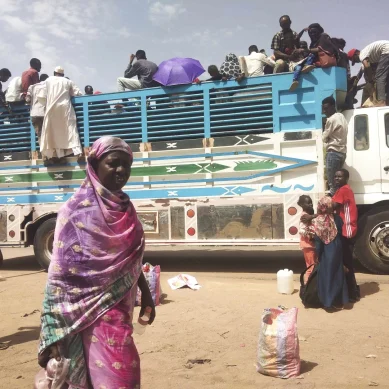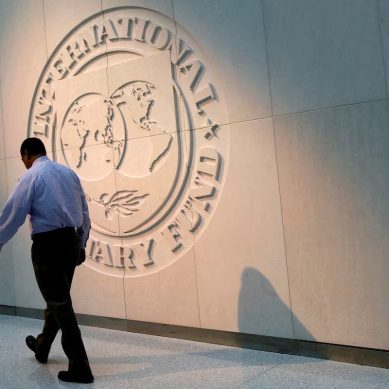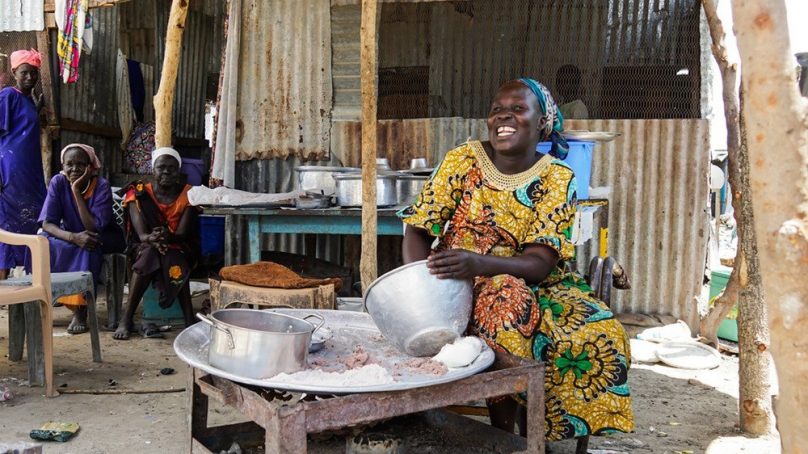
More than 18 months into a power-sharing government between South Sudan’s rival leaders, local conflicts still simmer, undermining a fragile peace accord. But in the northern flashpoint town of Malakal, a group of women peacemakers is trying to reverse that narrative by healing ethnic divisions to head off another bout of violence.
The gateway to the country’s largest oil fields, Malakal, once a thriving cosmopolitan centre, is now an empty shell, its deserted streets strewn with abandoned cars, rusted bedsteads, chairs, zinc sheeting – the detritus of three years of fighting.
Situated on the eastern bank of the White Nile, the town changed hands 12 times between 2013 and 2016 in a three-way conflict between the forces of President Salva Kiir; his arch-rival and now vice president, Riek Machar; and a Shilluk Agwelek militia led by General Johnson Olony – whose community considers Malakal to be part of an ancient Shilluk kingdom that straddles both banks of the river.
When the fighting stopped, Malakal – the capital of Upper Nile state – was in the hands of the government army, supported by a militia drawn from the Padang Dinka, a rival ethnic group that had expanded into Shilluk territory with Kiir’s backing.
A so-called Protection of Civilians (PoC) camp guarded by UN peacekeepers – home to 34,000 people and a 15-minute drive from the town – is the last significant Shilluk presence on the “ethnically cleansed” eastern bank of the river.
Shilluk here still hold out hope of being able to return to their former homes. But most of their houses in Malakal have been destroyed or are occupied by Dinka – a deliberate pattern of “population engineering”, say scholars, and a deep-seated grievance for people in the PoC.
Yet there is a memory of life before the war, when Dinka, Shilluk, and Nuer – the ethnic group most closely linked to Machar’s rebel SPLA-IO movement – lived together in what was once South Sudan’s second-largest town.
Rebecca Anyiel wants to revive the interdependence that historically existed. A Dinka, she is part of the Women’s Union, a local self-help group whose membership cuts across ethnic divides – around one third of the women in her group are Shilluk from the PoC.
“There is a reason for the mistrust between both communities,” she told The New Humanitarian. But by “speaking honestly” to one another, “asking for forgiveness”, and atoning for wrongs, those “fears will diminish slowly over time”.
Like Anyiel, most of her group’s members are market traders and meet regularly around a wooden table in an old building near Malakal market. These gatherings – to discuss how to strengthen their businesses and promote women’s rights – have helped forge real friendships between the women in Malakal town and those in the PoC.
“You can find women from the PoC and the town working together,” said Anyiel. “They are selling fish and vegetables in the market. This contributes to peace and encourages people to stay together.”
Angelina William is part of a “commuter population” that leaves the PoC by day to trade in the town – or to farm and fish – but who make sure they return to the security of the camp by nightfall. She sells tea from a stall in the market – more cost-effective than trading in the camp – and makes enough to send her children to school in the Sudanese capital, Khartoum.
“What is motivating both communities to improve the relationship is the need to provide for our families,” she told The New Humanitarian. “Thinking along ethnic lines is not helpful. If we want to feed our families, we need to stay together.”
Malakal is volatile. Earlier this year, Kiir blocked Olony – the Agwelek commander – from being appointed as Upper Nile governor. Instead, he supported Budhok Ayang Kur, a candidate without a military power base who is unlikely to push back against the marginalisation of Shilluk on the eastern bank.
When Kur arrived at Malakal’s tiny airport in March, people from the PoC turned out to greet him, and to escort him to the governor’s office in town.
Some wore traditional warrior attire of cheetah skin and held shields and spears. They sang songs of war and mourning, but there were also plenty of banners calling for peace. “Let us work for stability. No war. No tribalism”, one said. “Yes, for Unity of People from Upper Nile”, read another – a reminder of the region’s shared history.
But what the Shilluk felt was a celebration of their culture was viewed by some Dinka as provocation. As the throng reached the market, some youths attacked – beating people with sticks and shooting. Three people were killed in the mayhem.
“I was not afraid to give them shelter… trust-building between both communities is incredibly important.”
The violence was a setback for local groups like the Women’s Union and the UN-sponsored workshops held in the PoC that try to foster better relations between the communities. However, there were also glimpses that day that such peace-making efforts are beginning to have an impact.
Anyiel was making her way to the market when the shooting started. About to turn back, she spotted a group of Shilluk women running for cover. She called out to them to follow her home, and together they waited out the violence.
“I was not afraid to give them shelter,” Anyiel said. “Trust-building between both communities is incredibly important.”
And she was not the only one who helped. As the women sat nervously together, she called the Dinka paramount chief in Malakal to find out what was happening. He told her he too was sheltering Shilluk escaping the trouble in town.
- The New Humanitarian report
